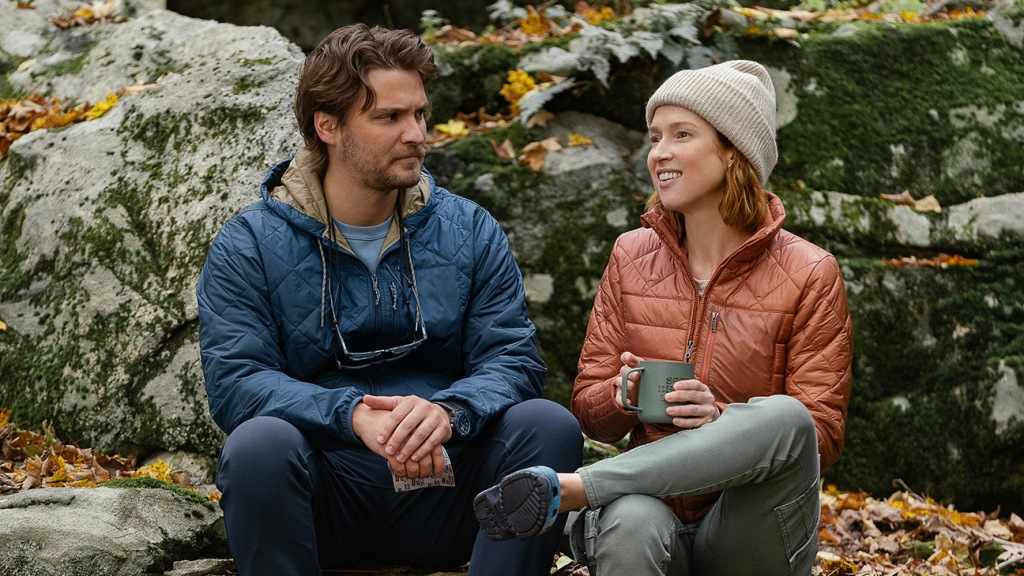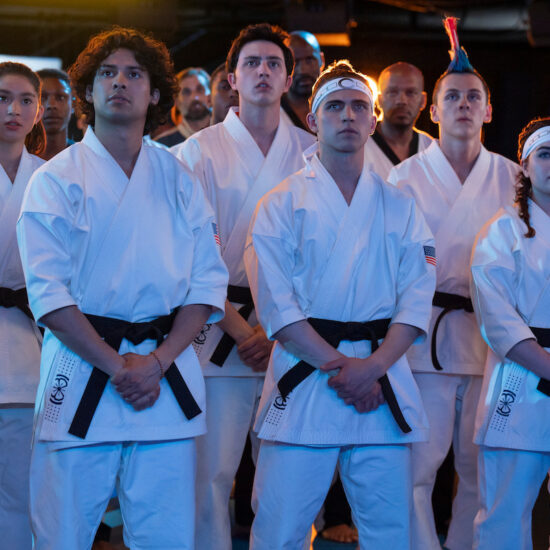
The premise of Vicky Wight’s Happiness for Beginners sounds like a promising invitation to indulge in an offbeat romantic comedy. It’s a Netflix offering with Hallmark Channel roots: A 30something woman embarks on a journey through the woods to recover from her divorce. What will she find on her sojourn? A renewed sense of hope? Confidence? Romance?
If we stick to the rules of the genre, our heroine Helen (Ellie Kemper) will have it all. Peace lies in the towering trees of upstate New York, where her wilderness survival course takes place. Hope looks like the bonds she makes with her fellow campers. Love takes the shape of a familiar face who helps her remember a past self. In exchange for our attention, we will be rewarded with a couple worth rooting for and learn some truths about life. We might even consider checking out Katherine Center’s novel, on which the film is based.
Happiness for Beginners
The Bottom Line
Too stilted to be sweet.
Release date: Thursday, July 27
Cast: Ellie Kemper, Luke Grimes, Nico Santos, Blythe Danner, Benjamin Cook
Director: Vicky Wight
Screenwriters: Vicky Wight, Katherine Center (based on the novel by)
1 hour 44 minutes
But Happiness for Beginners doesn’t play by the rules. It tries to stretch the boundaries of the romantic comedy, contorting itself into a sitcom of the Community type and a drama of the Eat Pray Love variety. It doesn’t give either of these genres enough attention, though, so the resulting film ends up feeling stilted and uneven. The woman at its center remains opaque, her romance is listless and her journey to self-discovery becomes an endurance test.
Helen, played with an endearing self-protectiveness by Kemper, wants to reset her life. Divorcing Mike (Aaron Roman Weiner), to whom she was married for five years, has unmoored Helen from herself. A house party is an awkward place to consider the flaws of your marriage or reflect on the hopes for your hiking trip, but that doesn’t stop Helen, whom we meet sitting at the center of a rager. She’s waiting for her brother Duncan (Alexander Koch) and trying to hear her own thoughts over the loud music.
Just as she’s about to give up, she’s interrupted by her brother’s best friend Jake (Yellowstone‘s Luke Grimes), who asks about her well-being and invites her to stay for another drink. Helen refuses. She’s going on a hike tomorrow, she tells him, and she’s just here to give Duncan, who promised to housesit, the keys to her place. Jake responds with a cutting — what some might call rude — observation: “I remember you used to be so much fun.”
Who Helen used to be haunts Happiness for Beginners, and the screenplay, written by Wight, would have benefitted from fleshing this out. Helen sees Jake at the introductory meeting for the wilderness course the next day, though the film never resolves why he’s there. She scolds him for his presence and commands him to pretend he doesn’t know her. Helen wants to use this trip to become a different person, to step into roles other than the dutiful ones she’s been assigned in her life. Her determination to change only activates our curiosity about past versions of herself. Who is this schoolteacher caught between responsibility to herself and to everyone around her?
Instead of burrowing into Helen’s character and using it to anchor the disparate narrative threads, Happiness for Beginners splits its attention and tries to be too much at once. Once Helen, Jake and the rest of their crew set off on the trail, the film transforms into a pseudo-office-sitcom. Wight’s screenplay details the daily happenings of their nearly two-week hike, giving us a sense of the skills required to commune with nature. Appropriate attention is paid to the varying archetypes — the neurotic troop leader (Ben Cook), the gay best friend (Nico Santos), the perpetual optimist (Shayvawn Webster), the finance bro (Esteban Benito), the underestimated airhead (Gus Birney) and the outspoken camper (Julia Shiplett) — and the roles they play in helping to keep the troupe alive. Montages of the hikers trekking through the woods or laughing around a campfire add a sweet depth to the film.
But these brief explorations often come at the expense of developing Helen’s storyline, which never stops feeling jagged. Her relationship with Jake, whom she begins to see as more than just her younger brother’s friend, is littered with too many false starts and stops to make it worth the emotional investment. And their courtship — an awkward dance we’ve seen before — comes off stiffer and more courteous than necessary. As the two go from pretending to be strangers to acknowledging their shared history, the relationship doesn’t gain the life force it should. Hanging in the air, still, is the question of who Helen used to be and, additionally, who she wants to be now.
This is where the Eat, Pray, Love of it all comes in. Helen announces at the beginning of the trip, when the hikers share their reasons for embarking on this 30-mile journey with one another, that she’d like to stop breaking promises to herself. It’s a moment that sets the film up to dabble in more spiritual angles. And it does, sort of. Kemper’s Helen doesn’t indulge in the same self-discovery talk as Julia Roberts’ Liz Gilbert, but Happiness for Beginners finds other ways for its heroine to grow. It’s among the coniferous trees, fields of variegated shrubs and cliffs overlooking the glittering rivers that Helen stops trying to save her past selves and embraces the mystery and freedom of her future.
It’s not enough to redeem Happiness for Beginners, but it gives us a sense of what, with a little more focus, the film could have been.













